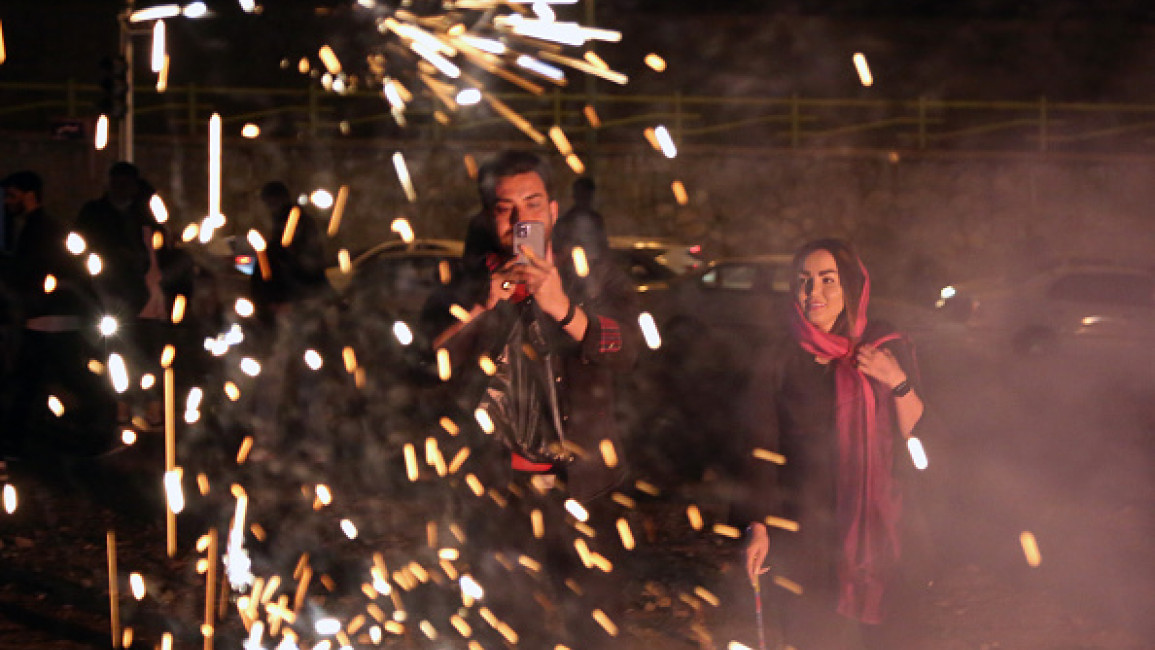Iranians celebrate Nowruz, usher in the New Year
Nowruz celebrations have taken place across Iran on Sunday, after two years of cancelled or muted celebrations due to the Covid-19 pandemic.
Dating back to before the 6th century BC, Nowruz marks the start of a new year and ushers in the spring on the date of the vernal Equinox, from the north of Iraq to the south of India.
While the origins of Nowruz lie in Zoroastrianism, the prevailing religion in Persia before the birth of Islam, celebrations take place across the region regardless of religion and culture - as the sun crosses the equator for the first time since autumn took hold.
This year marks the first time celebrations were able to return to full strength, two years after the coronavirus pandemic swept the world in spring 2020.
Every year before Nowruz, on the eve of the last Wednesday of the year, Iranians kick off celebrations with Chaharshanbeh Suri, or “Wednesday Light”.
Like Nowruz, Chaharshanbeh Suri is a pre-Islamic festival rooted in Iran’s ancient Zoroastrian religion.
Iranians celebrate fire as a force for purification and renewal by jumping over bonfires to cleanse themselves of ill health and bad luck.
After the 1979 Islamic Revolution, conservative clerics made concerted efforts to put an end to Nowruz festivities, and still disapprove of it.
One ayatollah, Makarem Shirazi, has called it “the festivity of the ignorant and the superstitious” because of its pagan resonances - and has previously blamed Iran’s large number of public holidays as a factor in the country’s economic stagnation.
Police and emergency services, meanwhile, oppose it on safety grounds, since people injure themselves jumping over fires and letting off fireworks every year.
In 2019, the last year celebrations were in full swing, Iran’s emergency services reported 2500 injuries and three deaths.
Celebrations in the diaspora
Twelve countries across South Asia mark Nowruz celebrations with public holidays - including Iran, Iraq, Kurdistan and India.
Nowruz, with its 22 different spellings, has proved itself a remarkably resilient religious celebration, adapting to survive and flourish under the authority of new religions and political regimes for thousands of years.
And with diaspora communities around the world, Nowruz celebrations have become a truly global affair.
Public and private Nowruz festivities have been taking place across London, New York and Paris - and in previous years, have taken place in Kyiv - celebrated by Turkic diaspora communities living in Ukraine.



